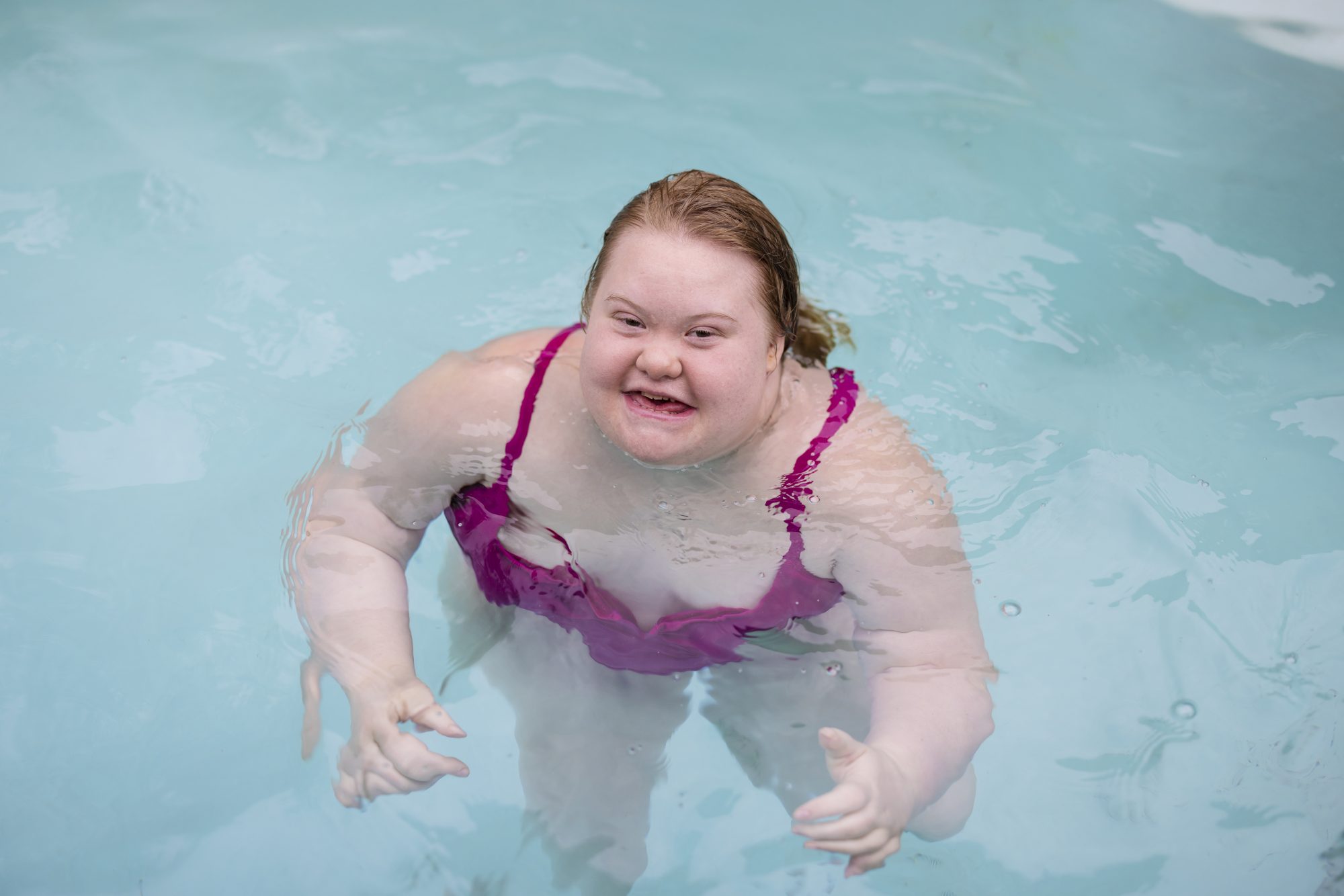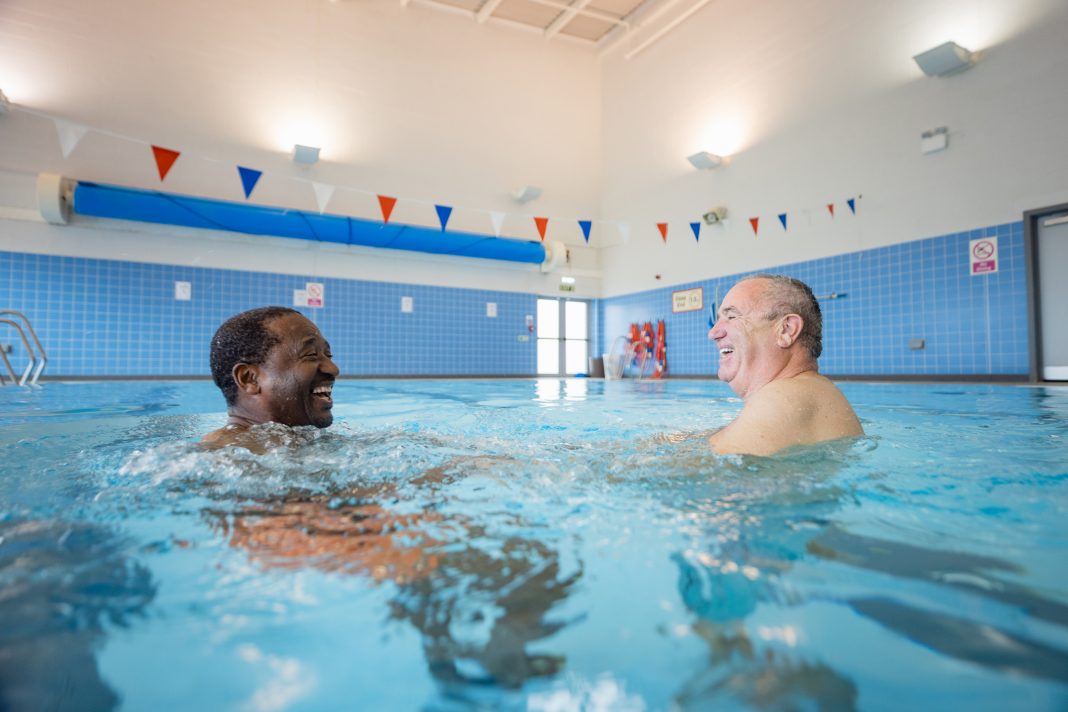A new study from Better investigates the benefits of blue spaces and swimming for mental and physical health
Better has studied the benefits of swimming on Britain’s mental health, and the results are impressive. However, despite the profound impact blue spaces can have on our health, the rising cost of living means that these leisure facilities are in danger of becoming exclusive to those with enough money to visit.
42% of Brits would actively look to live near a blue space
Interestingly, blue spaces have such an impact on people’s lives and mental well-being that 42% say they would actively look to live close to a blue space, while a quarter says they wish they lived closer to blue spaces. But why the clamour for accessible blue spaces?
The research lists the many benefits of swimming. 55% of people said spending time near bodies of water improves their mood and their mental health (41%), calms their anxiety (39%) and helps them disconnect from life’s worries (31%).
In addition, 27% say it helps them sleep better, 16% say it improves their decision-making, and 13% say it helps with their personal lives or relationship issues. Time spent in blue spaces was also found to be more beneficial to mental health than spending time watching television or playing sports and was even only slightly behind spending time with friends and family, which was found to have the best impact on mental well-being.
Aside from those many benefits, many also claimed swimming pools were central to local communities and, in particular, important for children’s development and health. Considering that 39% of the UK also admitted to suffering from mental health issues such as anxiety and depression, the availability of accessible, welcoming, and safe blue spaces for the whole country is clearly central to the nation’s well-being.
‘Time to completely zone out and have space’
Better spoke to Jasmine Breaker-Rolfe, who was diagnosed with anxiety and depression at age 14 and was prescribed exercise as a way of improving her mental health: “I had counselling, and they recommended exercise to help. I was given time on a Friday morning to swim with my aunt, which really helped as it gave me time to completely zone out and have space. I always enjoyed swimming and going with my auntie to help my anxiety.
“Swimming pools are incredibly important for mental and physical health, and they also teach people lifesaving skills. I would recommend swimming to anyone suffering from poor mental health. It really helped.”
37% of the UK population has stopped swimming regularly due to the high cost of living
The research sheds light on the relationship between the rising cost of living and our access to swimming pools and blue spaces in general, revealing that a significant percentage of Brits have had to cut back on their swimming routine due to the cost of living. According to the study from Better, 37% of the UK population has stopped swimming regularly due to the high cost of living, despite the fact that 89% of Brits feel positive benefits of swimming and from being near water, such as improved mental health, lifting their mood, and calming their anxiety.
Respondents were adamant that more needs to be done to protect blue and green spaces in general, with experts stating how beneficial these accessible spaces are for our mental and physical health. While 85% agreed that protecting these spaces is a priority, a further 76% called for more available blue spaces across the UK, with 83% saying they believe all towns should have access to blue or green spaces.

The importance of rehab swimming
Better also spoke to a former army fitness instructor, Mark Harris, who was injured badly while serving in the British Army and endured numerous operations on his back. Rehab swimming sessions were able to improve his physical and mental health after some difficult times adjusting to and recovering from the injuries. He said, “The injuries took away everything I loved. As an army fitness instructor, I was very fit and active. I used to cycle and go running, but I can’t do any of that anymore.”
“It also affected my family, and I was frustrated that I couldn’t do things with my son. I felt so bad that I even tried to commit suicide at one point. I didn’t want to ‘give in,’ but in the end, I had to accept the way I was.”
‘I’d been so angry for so long, but I didn’t realise it’
“I started going to rehab swimming sessions on Thursdays. There are people there with all kinds of problems—broken arms, spinal injuries, and people in wheelchairs. Swimming is hard on my knees, but I’m determined to keep trying. It gets my breathing going. At a wedding recently, my sister said, ‘You’re such a different person!’. I’d been so angry for so long, but I didn’t realise it.”
He hopes to continue swimming regularly and is looking forward to feeling better, both mentally and physically.
What barriers are in the way of individuals reaping the benefits of swimming?
Unfortunately, barriers continue to appear for those seeking to take advantage of the many benefits of swimming and blue spaces. While a third (37%) cite the rising cost of living and a fifth (20%) say their local pools have shut down or reduced operations, other issues such as low body confidence (25%), time commitments (23%), and a lack of general confidence in swimming skills (22%), are also having an impact on the number of swimmers getting into the pools across the country.
Issues of confidence can easily be solved by more time spent around water and the welcoming environments of swimming communities. Still, more support may be needed to help solve issues of reduced operations and shutdowns in local communities suffering due to the cost of living. As 38% of people say, swimming pools need greater support and investment to help open opportunities for more potential swimmers at every level, but especially for young people seeking to start their swimming journey.
Clearly, the study results highlight the growing conflict between the cost of living and access to important areas that benefit our well-being. Healthy lifestyle choices, including swimming habits, are being cut back due to financial constraints, which could potentially have knock-on impacts on mental and physical well-being as a result, and more support is needed in communities.
This piece was written and provided by Better, the UK’s leading leisure operator, who surveyed 2,006 people.











